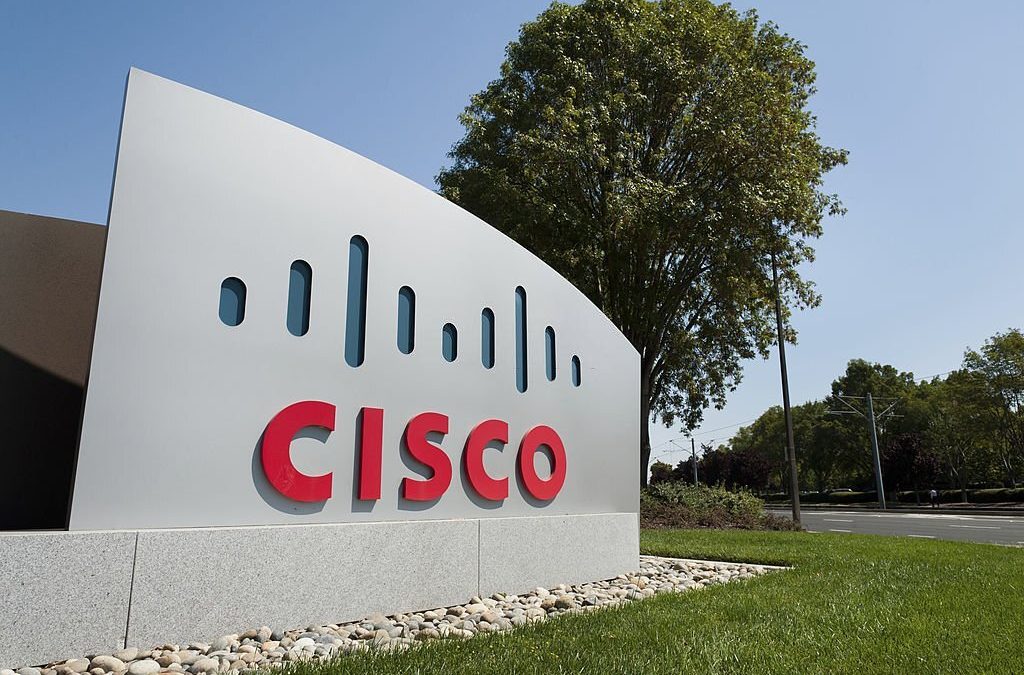
In 2002, Cisco was the world's most valuable firm, having excelled in the early days of the Internet. Cisco is a well-known networking technology business in the United States. Networking gear, telecommunications equipment, and other IT services and goods are all developed, manufactured, and sold by Cisco Systems Inc., a California-based company.
At its inception, Leonard Bosack and Sandy Lerner were its co-founders. They were the first to employ a multiprotocol router system to link computers across long distances via a Local Area Network (LAN). While many of its rivals went down during the dot-com boom, Cisco could capitalize on the advent of the Internet in the 1990s.
Role of CISCO in Cyber Awareness
As our reliance on digital resources grows, so does the number of cyberattacks. According to IBM, computer systems are breached 2,244 times per day on average, and corporations spend an average of $3.9 million each breach, according to a University of Maryland research.
Businesses must create a cybersecurity culture and devise security measures to counteract these threats. There should be a designated CISCO-certified professional in charge of defining this program.
Because of the ever-evolving sophistication of cyberthreats, the CISCO's responsibilities are evolving along with the environment. In many ways, the Internet is like a chessboard on which the pieces are always moving. With so many essential decisions being taken, maintaining a solid defensive posture in cyberspace is more crucial than ever.
CISCO is dominating this grueling battle. Rather than just protecting data, they are now accountable for their firms' security incidents and business continuity policies, including disaster recovery and boosting the broader cybersecurity culture.
Cisco Certificates for Cyber Security
Cisco provides many cyber security certificates. These can be divided into four categories:
1. Primary Certificates
2. Associate Level Certificates
3. Professional Level Certificates
4. Expert Level Certificates
We'll discuss these categories and their certificates in detail in the coming section.
1. Primary Certificates
These are the entry-level certificates in the cyber security cisco certification. They include the other two certificates.
- CCENT
- CCT
CCENT
Networking fundamentals are required for this certification, the lowest level of Cisco certification. CCNA was the first level of certification before its debut. Beginners may use it in an entry-level network support job with satisfactory results. CCENT-trained staff can manage and troubleshoot a small corporate network, including basic security measures. To become a CCNA, you must first get your CCENT certification.
CCT
Service technicians with Cisco certifications are capable of repairing or replacing critical Cisco networking or system components on-site with customers. It is the job of Cisco's Technical Assistance Center (TAC) to work directly with technicians to resolve issues quickly and efficiently.
As of November 2017, two CCT certification domains were available:
1. The CCT Routing and Switching certification are valid for three years.
2. The CCT Data Center is valid for three years.
2. Associate Level Certificates
Cisco's second cyber security standard certification level is the associate level. After starting cyber security learning, the professionals enter this level for further learning.
A passing score on the Cisco test #200-301 is required for a CCNA certification. At the end of the test, applicants are given a score report that includes a breakdown of their scores by exam component and the overall passing mark.
This exam focuses on installing, operating, and troubleshooting a small to the medium-sized business branch network. All the principles of networking and Internet protocols are covered in this test. It also covers security fundamentals and automation, and programmability.
The CCNA certification test has no requirements. The CCT also serves as a beginning point for networking.
The CCNA certification is valid for three years. Every three years, holders of current Cisco re-certifications must take and pass new exams to keep their credentials current.
Particular CCNA certificates in the following niches are also available that give in-depth knowledge and skill to certificate holders for the particular place.
- CCNA Routing and Switching
- CCDA Design Network
- CCNA Cloud
- CCNA Collaboration
- CCNA CyberOps
- CCNA Industrial
- CCNA Security
- CCNA Service Provider
These associates work in different companies worldwide and provide them with cyber help.
3. Professional Level Certificates
The professional level is Cisco's third level in the cyber security standard certification field. After starting cyber security learning, the professionals enter this level for further learning.
In networking, Cisco's most popular certification program is called CCNP, or "Cisco Certified Network Professional." After passing the CCNA certification exam, you may still take the CCNP exam.
The CCNP exam allows you to take either the core technology or a particular specialty examination to tailor your professional-level certification.
These tests are all focused on one specific technology. For each core test, there are a variety of concentration exams from which you may choose. Each CCNP specialization's prerequisites, core requirements, and concentration exams are listed below.
Particular CCNP certificates in the following niches are also available that give in-depth knowledge and skill to certificate holders for the particular place.
- CCNP Routing and Switching
- CCDP Design Network
- CCNP Collaboration
- CCNP Data Center
- CCNP Security
- CCNP Service Provider
- CCNP Wireless
These professionals work in different companies worldwide and provide them with cyber help.
4. Expert Level Certificates
The expert level is Cisco's final level in the cybersecurity standard certification field. After completing professional cybersecurity learning, the professionals enter this level for further learning. The expert level is the ultimate level of cyber security professionals. These are in high demand worldwide for helping businesses and IT industries. Validating your knowledge at every step of the information technology lifecycle, from its inception through optimization and maintenance, requires you to achieve a Cisco Expert Certification.
The relationship between software, networks, and physical infrastructure is becoming more complex. Automated solutions assist businesses in growing their infrastructure and warding against threats while enabling enterprises to provide engaging and unique new experiences to their customers. With Cisco's expert certificates under your belt, you may contribute to the complete actualization of that potential limitlessly.
Particular CCE certificates in the following niches are also available that give in-depth knowledge and skill to certificate holders for the particular place.
- CCA Architect
- CCIE Routing and Switching
- CCDE Design Network
- CCIE Collaboration
- CCIE Data Center
- CCIE Security
- CCIE Service Provider




